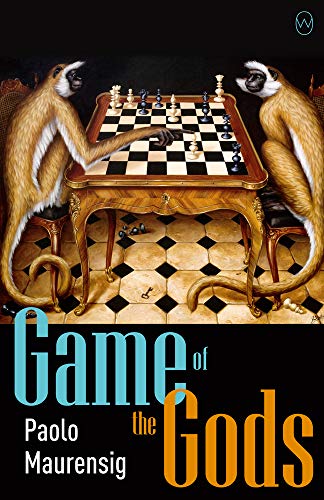Game of the Gods
Inspired by the real life of the great Indian chess master, Malik Mir Sultan Khan, this literary historical novel set in the early-to-mid-20th century plays out like an intriguing chess game. Sultan, an uneducated youth in the Punjab, becomes a servant to a maharaja, studies chess, and wins the national Indian Chess Championship. He is terrified when his master takes him to England to compete in the national British Chess Championship.
Overwhelmed by the language, cold climate, and Western chess rules, he is scorned as an idiot savant. Although Sultan performs a crucial deed for Britain during WWII, he is still mistrusted and mistreated. Disillusioned by his experiences, he calls himself a “freak of nature, rather than a genuine chess master.” Fleeing England, he discovers pleasures and perils in New York City.
The novel is structured as an interview between a reporter and Sultan about his adventurous life. In a first-person voice, he captivates the reader with his personal stories. An early chapter about a killer tiger in his rural village describes the poverty, fear, and death of his childhood. Later, Sultan explains that chaturanga, the ancient Eastern ancestor of chess, was “much more than just a simple war game, it was also a rule to live by.” Readers also get a clear picture of the political tension between Britain and India and race and class discrimination.
He accepts his destiny. “Our religion teaches us that concealed behind every victory or defeat on the chessboard—and in life as well—lies the indelible design of karma.” Even readers who have never played chess will be enchanted by this tale, which is less about chess and more about survival. The author has successfully developed a chess genius’s underrated history into a fascinating novel.










